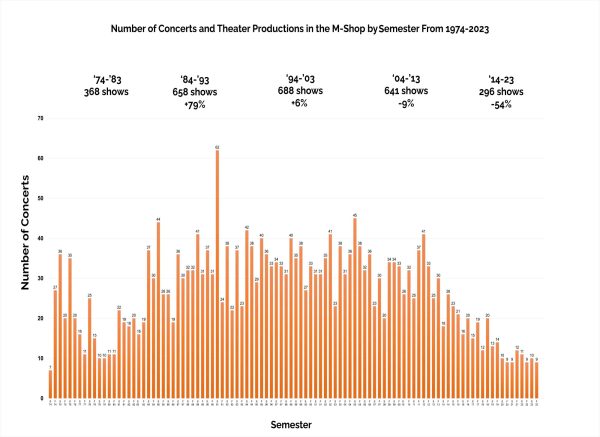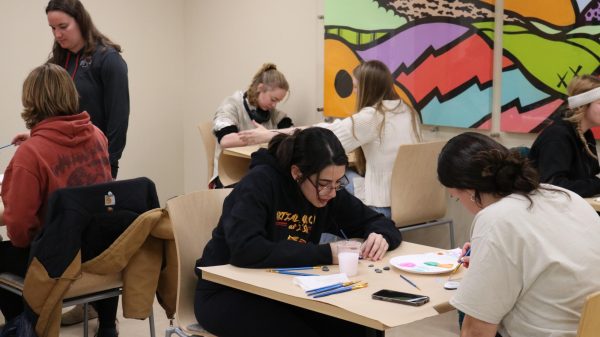Learn to be alone – not lonely
August 10, 2017
It can be common for college students to study, eat or walk around campus alone. Your schedule often differs from your friends’ schedules- that is okay. There’s no shame in learning to spend some time by yourself.
Since human beings are social by nature, there is a negative stigma around “being alone,” from an empty relationship status to simply grabbing coffee by yourself. Even though it might seem that these situations can hold negative connotations, they actually aren’t negative at all. Clinging to others and becoming reliant on them for comfort is extremely counter-productive to the independence that college is meant to foster.
“You may want to start small if being alone is new to you,” said Abigail Brenner, M.D., quoted in psychologytoday.com. “Carve out time every week to be by yourself (or an hour a day if you can). Take yourself solo to a movie or dinner. Venture to new places. Explore. Be adventurous. Build on the small to take bigger and bigger risks.”
Think you’ll have a terrible time doing something by yourself? According to a study conducted by Rebecca Ratner of the University of Maryland and Rebecca Hamilton of Georgetown University, that is probably not the case. Ratner and Hamilton stopped 86 students on a college campus — some of them in a group, some of them alone — and asked them to take a trip to a nearby art gallery after they predict how much they will enjoy the experience.
The results showed that the students who went solo predicted lower levels of enjoyment, even though they ended up enjoying the experience just as much as those who went in a group.
Ratner also found that a huge contributor to people not wanting to do things alone is the fear of being judged by others.
“I’ve presented this work in Turkey, in Singapore, in China, and all over people are telling me the same story,” Ratner told John Hockenberry of The Takeaway. “They’re afraid of what people will think of them if they go out into public spaces and do fun things alone.”
Ratner questioned why people feel so uncomfortable going to the movies alone, but quite comfortable grocery shopping alone. That mindset is because people do not treat functional and educational activities the same way, she said, adding that society can start to redefine what it means to be a “solo consumer” more positively.
When doing things alone, whether that be studying quietly in the library or hitting the dining hall for a meal, remember that no one is judging you as harshly as you are judging yourself.
“For me, loneliness is different than just being alone,” said Brian Vanderheyden, manager of the Student Wellness Center. “A person usually always has time when they choose to be alone, and that can be healthy for recharging, refocusing, etc. Personally, I need alone time usually every day to recharge and I enjoy that,” he said. “But loneliness, on the other hand, is more of a state of feeling of being alone and being sad about that and/or a feeling of not belonging and feeling isolated in their community.
Being alone is one thing, but feeling lonely can oftentimes be a completely different, and potentially unhealthy, thing. “One tip I would offer is if someone is experiencing a more intense feeling of loneliness is to explore their feelings with a professional and/or someone they trust on campus,” offered Vanderheyden. “We have incredible staff in the Student Counseling Center who can work with students to explore their feelings of loneliness,” Vanderheyden said. “If a student lives on campus, connecting with their community adviser or hall director would be another resource I would recommend. Student Wellness can also help students identify resources at ISU that can help them, and students can explore our website for more information that might be helpful for them personally.”
















